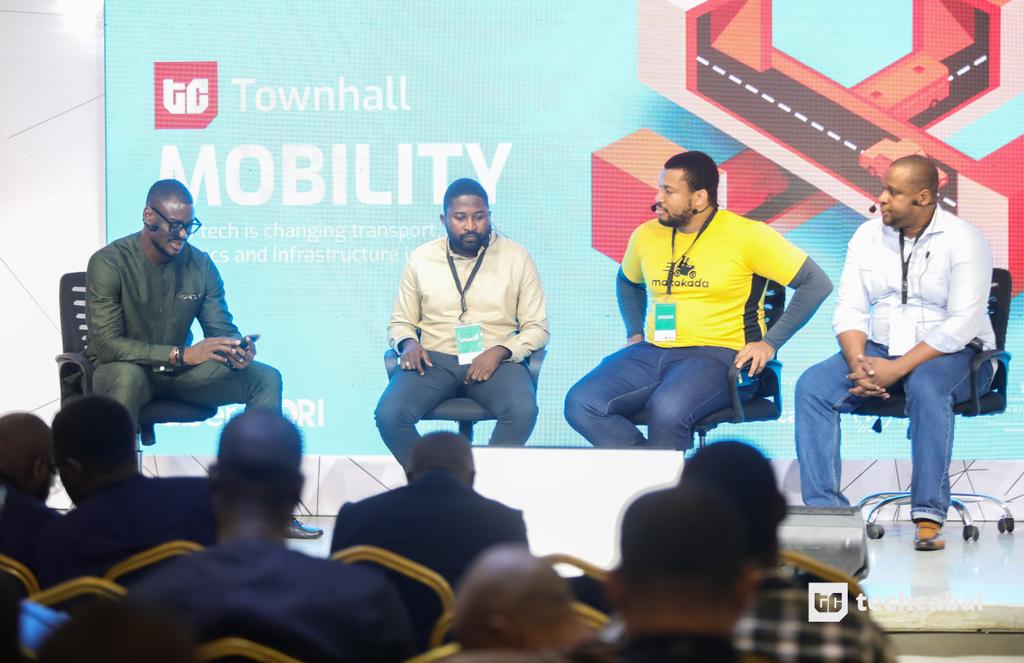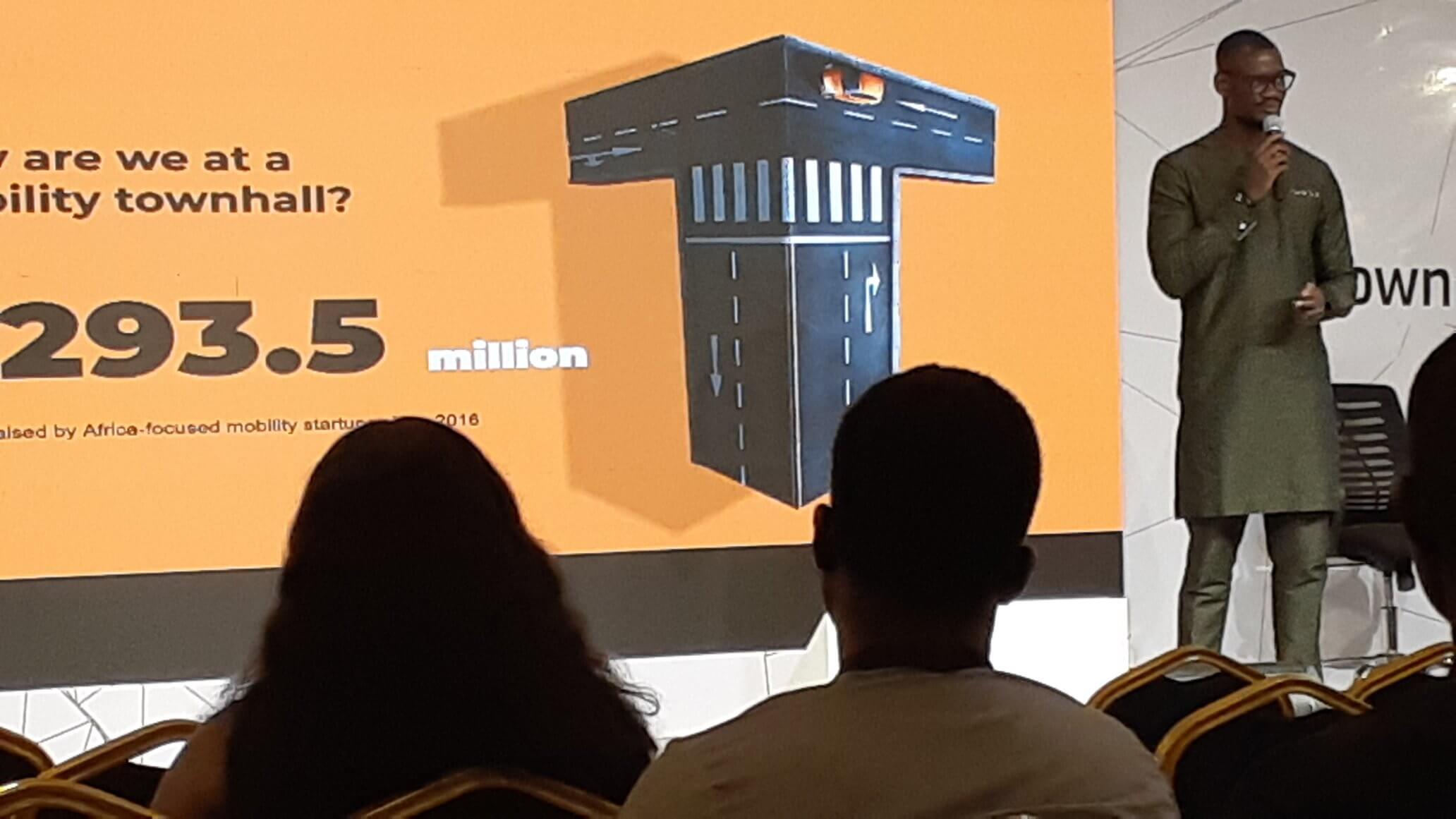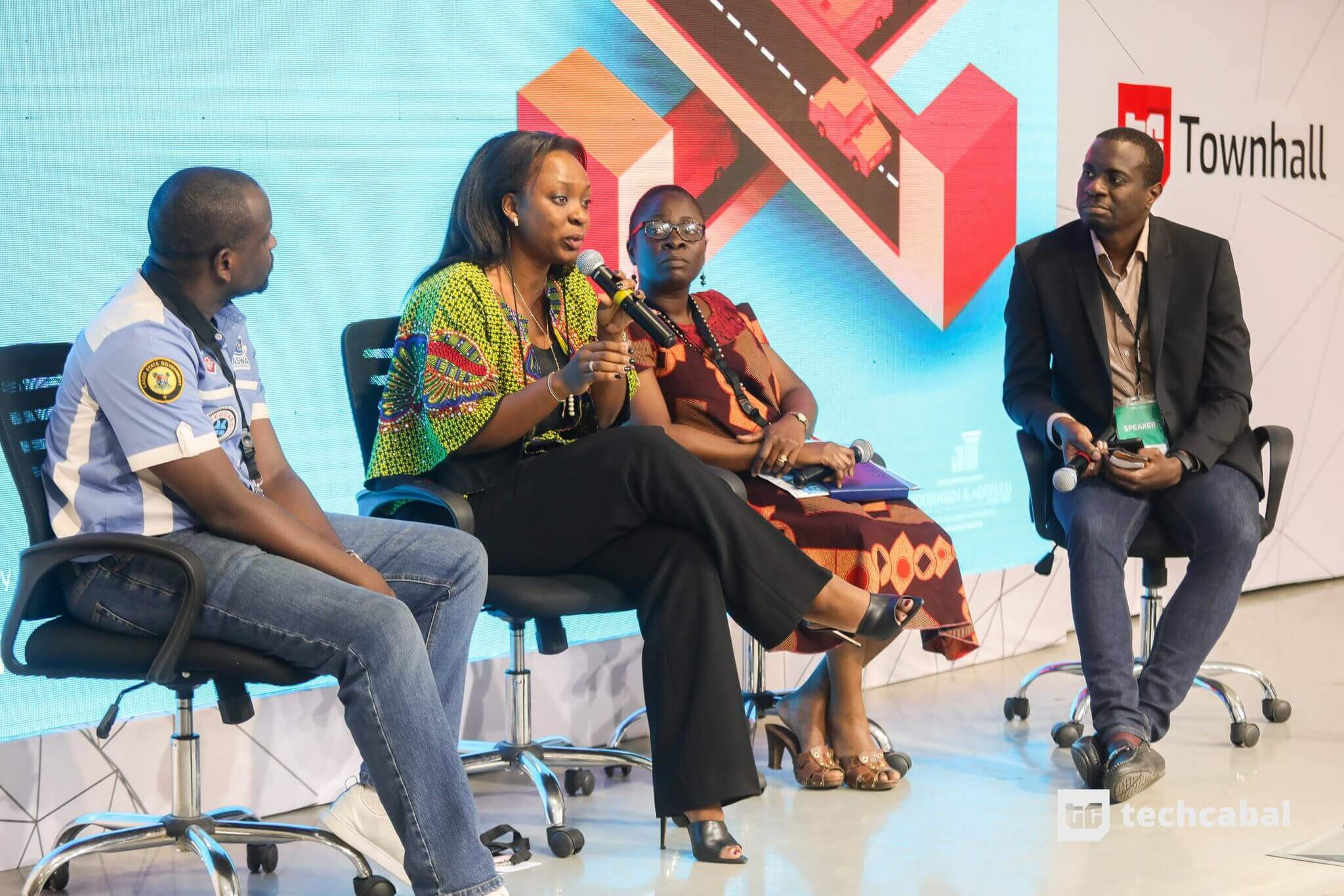Five takeaways from TechCabal's Mobility Townhall
I was at the TC Townhall: Mobility. Here are five things I took away from the event, which convened the stakeholders in Africa's mobility sector.

TechCabal's Townhall series convene stakeholders in the African tech ecosystem. On September 27, 2019, 400+ stakeholders in the mobility sector were brought together to discuss the challenges of the sector and set the agenda for growth at TC Townhall: Mobility.
The event, tagged, TC Townhall: Mobility—how tech is changing transport, logistics and infrastructure in Africa, held at the Zone Tech Park—a startup on a mission to build other startups by providing co-working spaces, advisory and technical support.
Of all the expected speakers and panelists, only Dr Frederic Oladeinde, the Lagos state Commissioner of Transport, was not present at TC Townhall: Mobility. But the General Manager of Lagos Waterways Authority (LASWA), Damilola Emmanuel, and Bus Service Specialist at Lagos Metropolitan Area Transport Authority (LAMATA), Olukemi Amure, were there to represent the government.
TC Townhall: Mobility featured four panel sessions, namely, Operator Session: Africa's haulage opportunity; The Last Mile: Challenges and opportunities for two-wheelers; Investor Session: Investing in Africa's mobility sector; and Regulator Session: Creating an enabling environment for the mobility sector to thrive.
There were also product demos by startups such as AWABike—a bicycle-sharing startup, LifeBank, FieldInsight, and VerifyMe.
I was present at the event too, and these are some of the insights I got from the different conversations.
📍 Touchdown
— ᴅᴇʀʟɪɴ (@DanielIyanda) September 27, 2019
TC Townhall: Mobility, Zone Tech Park pic.twitter.com/YhBWtfZ6kT
A lot of money has been invested in Africa's mobility sector
During his keynote session, Tomiwa Aladekomo, CEO of Big Cabal Media—the parent company of TechCabal, disclosed Africa-focused startups have raised $293.5 million [~₦106.2 billion] since 2016. These startups include Max.ng, Gokada, Gozem, SafeBoda, ORide, Kobo360, Lori Systems, Swvl and Bolt (formerly Taxify).
In the mobility sector, huge capital is an advantage. ORide has proven this to be true. The one-year-old startup is blitzing other bike-hailing startups in Nigeria, with the $50 million raised in its series A round.

But you need more than huge capital to be successful in the mobility market. As Omobola Johnson, Senior Partner at TLcom and former Minister of Communication of Technology, rightly said: "Capital must be deployed efficiently, else you will just burn fast for growth sake [and eventually die]. To scale a business, ensure you have standardized technology, systems and processes."
The mobility frenzy has a déjà vu feeling, but it is apt for the ecosystem
For techies, the frenzy funding rounds in the mobility sector feels like 2012, when investors were plunging money into e-commerce startups only for most of them to shut down in 2018.
"E-commerce didn't work because of the inefficiencies of the supply chain and distribution", said Obi Ozor, CEO of Kobo360. According to him, mobility startups can fill that gap and resolve the challenge—but there is an infrastructure gap, which is in government's purview.
So, it makes sense for us to see the proliferation of mobility startups following the e-commerce and fintech wave (which started in 2016).
Max.ng claims to be profitable in Akure
Chinedu Azodoh, co-founder and CEO of Metro Africa Express (MAX.ng)—the first bike-hailing startup in Nigeria launched in 2015, said the company's MaxOkada operations in Akure is profitable.
This profitability, however, comes only as a result of the model they adopted in the Sunshine state: to serve as an aggregator of motorcycle riders, and because the headquarters in Lagos bears most of the overhead cost.
According to Azodoh, MAX.ng operations in Lagos aims to break-even by September 2020. He also reiterated the company's plan to launch electronic motorcycles sometime next year, which was first announced in June 2019, when it raised $7 million (₦2.5 billion).
ORide, on the other hand, has operations in 12 cities and it is not profitable yet. According to Ridwan Olalere, Director of Operations at ORide, they adopt different models in each of the cities and are more focused on growth now. Ridwan also brags that their customer retention is also high. He said, "Even when we remove promotions, the dip in use that we experience is just like on a rainy day—not that much".
Indeed, growth and quick expansion could be the saving grace of the mobility startups or their death knell. Because big players like Uber and Bolt continue to burn and record losses as they grow across countries, it seems the bike- and ride-hailing startups are in a race to the bottom: the last man standing will get all the spoils.
The end game for most mobility startups in Africa's mobility sector is to become a 'super app'
The value proposition of moving goods and persons from point A to point B, faster and safer, is not enough. Mobility startups must provide value-added services like finance.
SafeBoda is doing this excellently in Kenya. Kobo360—a freight logistics startup—also provides financing for truck drivers using its platform by paying them upfront. According Omobola, a member of the Kobo360 Board [because TLCom is an investor in Kobo360], the financial service provided by Kobo360 is a way to get traction. Although the funds are provided by banks in partnership with Kobo360, whether they will continue to provide such financial service as they scale is yet to be seen.
Emekea Ajene, CEO of GOZEM—a two-wheel mobility startup popular in Francophone African countries (Benin and Togo), confirms that they have added financial services to their offering. Chinedu of Max.ng said they are planning to integrate financial services into their platform too. And ORide already leverages OPay as a payment platform.
This trend is seen across all mobility startups, including bigger players like Gojek in Indonesia and Uber, who have morphed into a multi-service platforms. The unit of economics could be against the mobility startups, but economy of scale might be an ally.
Bike-hailing startups need to negotiate hard to fit into government's master plan
The last panel session of the TC Townhall: Mobility was the Regulator Session, which was moderated by Femi Longe, Director of Innovation at Co-Creation Hub (which recently acquired Kenya's innovation centre, iHUB).
The commissioner was supposed to be a panelist alongside Titi Akinsanmi, Policy and Government Relations Lead for West and Francophone Africa at Google, and Damilola, GM of LASWA. But he had to cancel at the last minute due to other official assignment, we were told.

Olukemi, Bus Specialist at LAMATA, disclosed on the panel that the government is currently implementing the multi-modal transport system in Lagos master plan, but the plan cannot be shared with the public yet.
She added that the government is creating a framework for the mobility startups to operate and plans to formalize the National Union of Road Transport Workers (NURTW).
Titi, however, advised the government to create a regulatory sandbox for the startups to operate. And startups need to collaborate in negotiating with the government. "NURTW is a critical stakeholder in Lagos transport, politics aside," she said. "Startups must come together and negotiate with the government as an entity".
In simple terms, the takeaways from the regulator session are:
- There is need for a regulatory sandbox,
- Creative partnerships, and
- The conversation should go beyond licencing







Comments ()